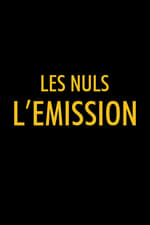Personal Info
Known For Acting
Known Credits 4
Gender Male
Birthday March 1, 1936
Day of Death January 12, 1997 (60 years old)
Place of Birth Saint-Germain-en-Laye, Yvelines, France
Also Known As
- Jean Edern-Hallier
Content Score
100
Yes! Looking good!
Login to report an issue
Biography
Jean-Edern Hallier (1 March 1936 – 12 January 1997) was a French writer, critic and editor.
After his exclusion from the literary review Tel Quel, which he co-founded with Philippe Sollers, Hallier went on to publish novels and satirical pamphlets, and created the controversial newspaper L'Idiot International.
The son of World War I French General André Hallier, Jean Hallier was born in 1936. While the Hallier family has ancient Breton roots on his father's side, he later claimed in his novel L'évangile du fou (1986) that his mother had Alsatian and Jewish heritage. He was baptised in the village of Edern, whose name he later added to his first name Jean.
Hallier, returning to France after World War II, first studied at the Pierre-qui-vire convent and then at a Paris lycée and at the University of Oxford . He travelled extensively, even getting shipwrecked in the Persian gulf, and in 1960 founded the literary review Tel Quel along with Philippe Sollers and Jean-René Hughenin. Three years later he published his first novel, Les Aventures d'une jeune fille ("The Adventures of a Young Girl"). He then worked as an editor for publishing house Plon and completed a second novel, Le Grand écrivain ("The Great Author"), in 1967.
Deeply stirred by the 1968 student riots in Paris, Hallier disclosed left-wing political views in the partly autobiographical La Cause des peuples (1972). He engaged into politics full-time and started the first, leftist version of his paper, L'Idiot international, partly funded at first by Jean-Paul Sartre and Simone de Beauvoir.
Hallier traveled to Chile after Pinochet's 1973 coup, carrying funds gathered by Régis Debray. Hallier was supposed to hand the money out to the Chilean resistance. However, he returned to Paris without the money and without having delivered it to the resistance, claiming he had bought 400.000 hectares in the Amazon Basin to provide shelter for the future Chilean exiles. He progressively broke up with the left-wing after this event. He also broke with the literary style of the nouveau roman with Chagrins d'amour, which was shortlisted for the Prix Goncourt in 1974.
He hosted one of the first pirate radio stations in 1977, "Radio Verte", close to the ecology movement. Radio Verte only ran for two days, but wielded a lasting influence.
He was suspected of simulating his own kidnapping in 1982, and of organizing a bombing in Régis Debray's building (which caused no casualties), a suspicion recently confirmed by Régis Debray and Gilles Ménage, who worked for President François Mitterrand in the Elysée cell involved in the wiretap scandal. He also committed, it was alleged, less serious "attacks", such as setting fire to Françoise Mallet-Joris's doormat. Mallet-Joris was a member of the Goncourt jury, and the fire was meant as a protest against the way literary prizes were awarded.
Politically, Hallier was successively a Maoist, an admirer of Fidel Castro, while at the same time getting close to Jacques Chirac, and supported Pinochet after his return from his expedition to Chile. ...
Source: Article "Jean-Edern Hallier" from Wikipedia in English, licensed under CC-BY-SA 3.0.
Jean-Edern Hallier (1 March 1936 – 12 January 1997) was a French writer, critic and editor.
After his exclusion from the literary review Tel Quel, which he co-founded with Philippe Sollers, Hallier went on to publish novels and satirical pamphlets, and created the controversial newspaper L'Idiot International.
The son of World War I French General André Hallier, Jean Hallier was born in 1936. While the Hallier family has ancient Breton roots on his father's side, he later claimed in his novel L'évangile du fou (1986) that his mother had Alsatian and Jewish heritage. He was baptised in the village of Edern, whose name he later added to his first name Jean.
Hallier, returning to France after World War II, first studied at the Pierre-qui-vire convent and then at a Paris lycée and at the University of Oxford . He travelled extensively, even getting shipwrecked in the Persian gulf, and in 1960 founded the literary review Tel Quel along with Philippe Sollers and Jean-René Hughenin. Three years later he published his first novel, Les Aventures d'une jeune fille ("The Adventures of a Young Girl"). He then worked as an editor for publishing house Plon and completed a second novel, Le Grand écrivain ("The Great Author"), in 1967.
Deeply stirred by the 1968 student riots in Paris, Hallier disclosed left-wing political views in the partly autobiographical La Cause des peuples (1972). He engaged into politics full-time and started the first, leftist version of his paper, L'Idiot international, partly funded at first by Jean-Paul Sartre and Simone de Beauvoir.
Hallier traveled to Chile after Pinochet's 1973 coup, carrying funds gathered by Régis Debray. Hallier was supposed to hand the money out to the Chilean resistance. However, he returned to Paris without the money and without having delivered it to the resistance, claiming he had bought 400.000 hectares in the Amazon Basin to provide shelter for the future Chilean exiles. He progressively broke up with the left-wing after this event. He also broke with the literary style of the nouveau roman with Chagrins d'amour, which was shortlisted for the Prix Goncourt in 1974.
He hosted one of the first pirate radio stations in 1977, "Radio Verte", close to the ecology movement. Radio Verte only ran for two days, but wielded a lasting influence.
He was suspected of simulating his own kidnapping in 1982, and of organizing a bombing in Régis Debray's building (which caused no casualties), a suspicion recently confirmed by Régis Debray and Gilles Ménage, who worked for President François Mitterrand in the Elysée cell involved in the wiretap scandal. He also committed, it was alleged, less serious "attacks", such as setting fire to Françoise Mallet-Joris's doormat. Mallet-Joris was a member of the Goncourt jury, and the fire was meant as a protest against the way literary prizes were awarded.
Politically, Hallier was successively a Maoist, an admirer of Fidel Castro, while at the same time getting close to Jacques Chirac, and supported Pinochet after his return from his expedition to Chile. ...
Source: Article "Jean-Edern Hallier" from Wikipedia in English, licensed under CC-BY-SA 3.0.
Acting
|
|||
|
|||
|
|||
|




